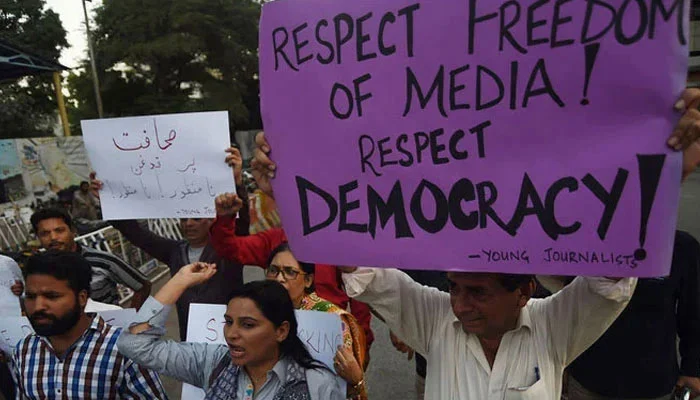Human Rights Commission Says Digital Freedoms Are Already Over-Regulated; Terms Three-Year Jail Term Excessive
The Human Rights Commission of Pakistan (HRCP) has urged the government, led by Prime Minister Shehbaz Sharif, to ensure an open debate in the Senate on the Prevention of Electronic Crimes (Amendment) Act, 2025, after it was pushed through the National Assembly by the ruling coalition.
The HRCP warned that if the bill becomes law, it might be used to target political workers, human rights defenders, and journalists who criticize state institutions. The commission raised concerns about the emphasis on “fake or false news” in Section 26-A of the bill, pointing out that the draft fails to clearly define “fake news.”
The statement came as the lower house approved the highly contentious amendments, which have drawn strong reactions from the opposition and journalist bodies.
The amendments propose the establishment of the Social Media Protection and Regulatory Authority (SMPRA), the National Cyber Crime Investigation Agency (NCCIA), and the Social Media Protection Tribunal, which would resolve cases within 90 days, with appeals allowed to the Supreme Court within 60 days.
The bill also lowers the punishment for spreading “fake information” online to three years, with violators potentially facing fines of up to Rs2 million.
HRCP termed the proposed three-year imprisonment “excessive” and said that the legislation refers to vague outcomes such as public “fear, panic, or disorder.”
The commission reminded the government that digital freedoms in the country are already over-regulated.
In addition to HRCP, journalist bodies, including the Joint Action Committee (JAC) — comprising the Pakistan Federal Union of Journalists (PFUJ), All Pakistan Newspapers Society (APNS), Council of Pakistan Newspaper Editors (CPNE), Association of Electronic Media Editors and News Directors (AEMEND), and Pakistan Broadcasters Association (PBA) — have announced plans to challenge the bill in court and launch a protest movement.
JAC stated that the bill focuses not only on social media but also on the digital platforms of electronic and print media, with the aim of criminalizing dissenting opinions.



